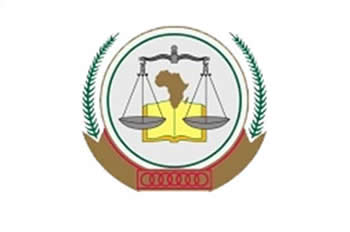African Court begins 2018 public sensitization
 The African Court on Human and Peoples’ Rights has rolled out comprehensive public education and engagement programme, which seeks to empower Africans to seek redress through the court in case of breach of their fundamental human rights.
The African Court on Human and Peoples’ Rights has rolled out comprehensive public education and engagement programme, which seeks to empower Africans to seek redress through the court in case of breach of their fundamental human rights.
The 2018 African Court sensitisation and engagement also seeks to create a platform for interaction with different stakeholders in order to deepen their understanding of the proceedings of the African Court.
Dr Robert Eno, African Court Registrar told the Ghana News Agency in an interview that the African Court would dispatch the first sensitisation mission to the Sahrawi Arab Democratic Republic (SADR) from February 5 to 7, 2018.
Dr Eno explained that the sensitisation mission forms part of the on-going efforts to encourage States to ratify the Protocol establishing the African Court and deposit the declaration under Article 34(6), which allows direct access to the Court by NGOs and individuals.
He said the main objective of the visit was to encourage SADR, which has already ratified the Protocol, to deposit the declaration required under Article 34(6) of the Protocol.
He said so far, 30 out of 55 African Union (AU) Member States had ratified the Protocol but only eight of the countries have deposited the declaration recognising the competence of the African Court to receive cases from NGOs and individuals.
The eight are; Ghana, Benin, Burkina Faso, Côte d’Ivoire, Malawi, Mali, Tanzania and Tunisia.
He said during the three-day mission, the African Court delegation composed of three Judges and Registry Staff, would hold a seminar for human rights stakeholders in the country, and also pay courtesy calls on the SADR President and the Speaker of the National Assembly , among others.
Justice Sylvain Oré, President of the African Court has welcomed the SADR’s invitation to conduct the sensitisation, adding, “That is a step in the right direction.
“For the African Court to achieve its objectives and further strengthen African human rights systems, a greater number of countries must ratify the Protocol and make the declaration under Article 34(6)”.
The African Court was established by virtue of Article 1 of the Protocol to the African Charter on Human and Peoples’ Rights on the Establishment of an African Court on Human and Peoples’ Rights.
It was to complement the protective mandate of the African Commission on Human and Peoples’ Rights, with a view to enhancing the protection of human rights on the continent.
Justice Ore explained that the success of the African Court as a human rights protection mechanism requires a wider ratification of the Protocol by Member States, as well as their acceptance of the competence of the African Court, by making the declaration under Article 34(6).
“This universal ratification would give the African Court the legitimacy it needs to effectively discharge its mandate,” he said.
He said since December 2010, the African Court has carried out continent-wide promotion programmes.
Justice Ore said the main objective of the sensitisation visits was to enhance the protection of human rights in Africa, raise awareness on the African Court; and encourage the ratification of the Protocol and the deposit of the Declaration.
He said the African Court was also encouraging the public to utilise the Court in settling human rights disputes and encouraging the utilisation of the Court for advisory opinions.
Source: GNA
